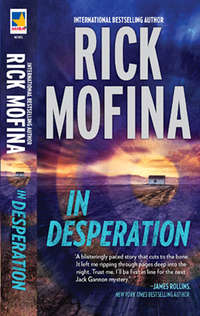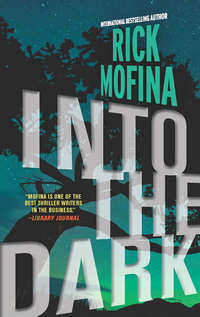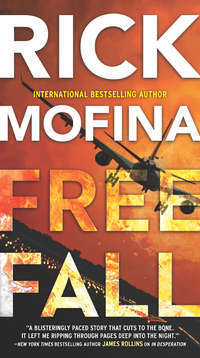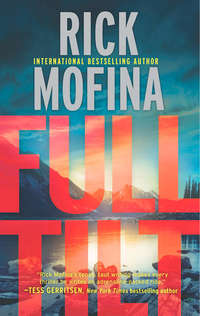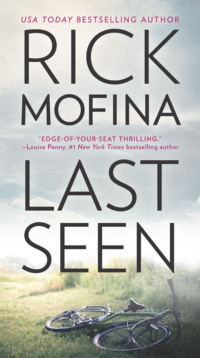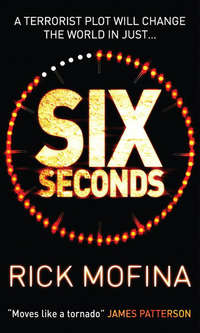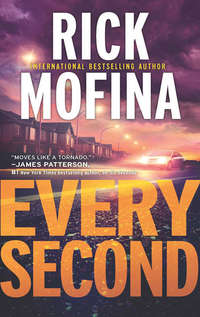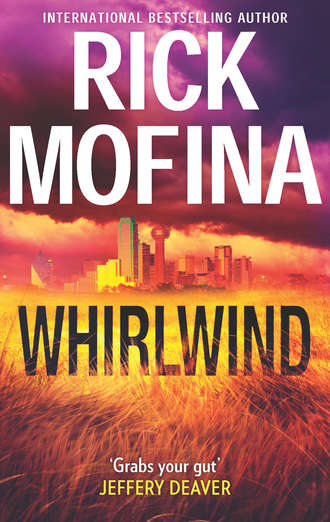
Полная версия
Whirlwind
Ten people worked at the bureau; most of the reporters were out. Kate had an hour before her next assignment, enough time to keep the promise she had made to her caller. She did a quick online search of the suburban news outlets for the last reports on the hit-and-run. Not much had surfaced. She made a round of quick calls to the highway patrol, the sheriffs for Ellis and Dallas counties, and Cedar Hill PD, which had jurisdiction. Kate got through to a sergeant, who updated her.
“Cody’s father had stopped to help a driver, an elderly woman, change a flat on Bear Creek Road when he was hit by a car,” the sergeant said.
“He was being a Good Samaritan.” Kate was taking notes.
“That’s correct.”
Investigators had a blurred image of the suspect car from a store security camera but were counting on people who knew about the case to step forward. The sergeant gave Kate details on time and location.
After the call she looked out the bureau’s twenty-second-floor windows. The sky had darkened. It was raining with flashes of lightning.
She called Cody back for more background on his father. Then, pen clamped in her teeth, she crafted a tight three-hundred-word news story on the search for the car tied to the death of a Good Samaritan motorist. She sent it to the news desk, hoping Chuck Laneer, the bureau chief, would see it before Dorothea Pick, the bureau’s news editor.
The scanners grew louder again with dispatches on a storm, and Tommy paced between his desk and the window, then began making calls. A severe weather warning had been issued earlier in the day indicating a slim chance of tornado conditions. Kate considered it for a moment, wondering about the odds of a tornado touching down and thinking that it was a good thing she’d brought her rain jacket. She still had some time before her assignment, a city meeting on parks that Dorothea had given her.
Kate glanced at Tommy. He was a good-hearted, hardworking kid, she thought, before her concern shifted to whether Chuck and Dorothea had assigned a reporter to monitor the possible storm.
She took stock of her temporary “squatter’s” desk, at the artifacts left by the previous occupant; the torn city map pinned to the fabric half wall, alongside the calendar and the fading list of contact numbers.
She had worked at a newspaper in Ohio before she was laid off. Now she was a week into a three-week “internship” at Newslead’s Dallas bureau. Internship? It’s an all-out job competition.
Kate was one of three reporters in the program. The other two candidates were experienced and they were Texans.
Roy Webster, 42, had been with the Houston Chronicle for twenty years before he was laid off. His team had been a finalist for a Pulitzer for its coverage of Hurricane Ike.
When they had all first met, Webster had extended his hand. “You’re not from Texas, are you, Kate?”
“No, I’m not.”
“You chose a helluva way to get to know the state.” He winked.
The other candidate, Mandy Lee, 33, was a general assignment reporter and former teen beauty queen, who’d won two state news awards before she’d taken a buyout from the Dallas Morning News.
She was cool to Kate when they’d met.
“Canton, Ohio? I didn’t know they even had a paper in that itty-bitty town.” Mandy showed Kate her pageant-winning smile.
Kate knew she was at a disadvantage. She’d also sensed that Dorothea Pick had disapproved of her being on the short list.
“You’re fortunate to be here,” Dorothea had said. “There were so many strong candidates right here in Dallas.”
For his part, Chuck Laneer, impressed by Kate’s doggedness when she’d worked in Ohio, had been firm but fair.
“Just show us your best,” he’d told her.
Oh, she’d do more than that.
Roy and Mandy may be better qualified but Kate was a never-say-die fighter. At the end of the internship, one of them would have a job. The others would go home unemployed.
Losing out was not an option for Kate. These days most newsrooms across the country were cutting staff. Few were hiring. This was Kate’s best shot at a full-time job, maybe her only shot, and so far it was not looking good.
So far, her work had received little play, or had resulted in inserts in other peoples’ stories. She’d had her name on only one item that had been picked up nationally. She’d put a lot on the line to be here.
She could not fail.
Kate met the eyes of Grace smiling from her screen saver, and a wave of guilt rolled over her.
Did I make the right decision, doing this?
Grace, Kate’s six-year-old daughter, was back home in Canton, staying with friends. Lord, how Kate missed her; she hated being away from her but she needed a full-time job. She was laid off from the Repository six months ago and this Dallas internship was her best shot at a new start.
But so far, it was not going well. She needed to deliver stronger stories.
Kate’s phone rang. It was Dorothea.
“Got your story. Come see me.”
When Kate got to Dorothea’s desk, the news editor patted a chair she’d rolled next to hers. Kate’s story was up on her monitor.
“Have a seat,” Dorothea said. “I want you to see what I’m going to do.”
Dorothea Pick, second in command at the bureau, was in her late forties. Kate thought she wore a little too much makeup and with her overarching eyebrows, appeared to be in a state of perpetual surprise, or anger. She had a lovely voice that dripped with Southern charm that bordered on condescension whenever she addressed Kate about her work.
“This is well written but it’s not a national news item.” Dorothea’s extension rang. She glanced at the number. “Hang on, I need to take this.” Into the phone, she said, “Where are you? Okay, what do you have? Yes, yes...but did it touch down?” After waiting for the answer, Dorothea glanced to Chuck Laneer’s glass-walled office. They could see him on the phone, standing at his desk, shirtsleeves rolled up, bifocals pushed atop his forehead and pointing a remote at his flat-screen TV. “I’m going to pass you to Chuck.”
Dorothea transferred the call and resumed her work with Kate’s story. Her mouse and keyboard clicked as she removed line after line.
“As you know, this tragedy was reported regionally, so at best this is an updated regional brief and regional briefs are one hundred words, maximum.” With surgical precision, she’d reduced Kate’s story to ninety-five words. “And, as we know, briefs don’t run with bylines.”
Kate watched Dorothea delete her name.
“There we go,” Dorothea said. “How’s that?”
“I don’t understand why this is not a story,” Kate said. “This man was a volunteer firefighter, an ex-Marine who’d done duty in Afghanistan. He stopped to help a woman who’d been visiting her dying husband in the hospital and paid for it with his life. The person responsible for killing him has so far gotten away with it.”
Dorothea nodded and smiled. “Sorry, it’s a traffic accident. Now you should get moving to the assignment I gave you.”
“The one about the meeting on city parks?”
“It concerns Dealey Plaza.”
“But there’s a severe storm approaching, possibly with tornadoes. Maybe I could help cover the outcome? The meeting doesn’t sound like hard news. I could pick it up later.”
“We’re fine with the storm. We need someone at the parks meeting.”
“But—” Kate shot glances at the news assistant monitoring the scanners and Chuck Laneer in his office on the phone “—I really think—”
“Are you refusing an assignment, Kate?”
“No, not at all.”
“Did you read the report on Dealey Plaza that I gave you?”
“Yes. But all it suggests is planting some trees.”
“You’re not from Texas, so you can be forgiven for not understanding that Dealey’s a national historic landmark. Anything concerning the plaza interests editors across the country. You’d better hurry along.”
Kate returned to her desk for her things.
Biting back her frustration, she pulled on her raincoat, unable to dismiss the niggling feeling that Dorothea was attempting to thwart her. In the past week she’d given the two other interns bigger stories that got major national play. It seemed Dorothea went out of her way to feed Kate scraps and soft news.
“Everybody stop what you’re doing!” Chuck’s voice boomed.
He stood in the doorway of his office holding a notebook in one hand and his glasses in the other. Thirty-nine hard years in news were written in the lines that creased his rugged face.
“We have confirmation that tornadoes are cutting across the metropolitan area. We have casualties and destruction.” Laneer glanced at his notebook. “We’ve got people going to Arlington, Grand Prairie and Lancaster.”
Laneer pointed his glasses at Kate.
“I want you to get to Wildhorse Heights, to the Old Southern Glory Flea Market, south of LBJ and Hawn. It got hit. New York wants everything we’ve got and they want it fast, people. Stand down from all other assignments. There is only one story today. Let’s get on it.”
4
Dallas–Fort Worth Metroplex, Texas
Kate took the elevator down to the building’s parking garage.
She hurried to her car, a 2007 Chevy Cobalt that started with a rattle, reminding her that she had to get it to the shop one of these days. She reset her mileage counter then keyed the flea market address into the GPS on her dash.
Newslead’s bureau was in Bryan Tower. The flea market was about twelve miles southeast.
She switched on her hands-free speakerphone and wheeled out of the garage. Her wipers swept at the rain as Chuck’s orders echoed in her head.
“Get us the facts, the heartbreak and the heroes.”
Kate got onto the expressway with her stomach tightening, as it always did whenever she’d rushed off to a breaking story. No matter how many tragedies or disasters she’d covered, Kate never got used to it.
No reporter did.
You never knew what you were heading into. But it was up to you to pull a story out of the chaos, to make sense of whatever was unfolding and to do it as a clock ticked down on you. And if that wasn’t enough pressure, Kate knew that she and her two competitors would be judged by their performance on this story.
The prize was a full-time job.
She adjusted her grip on the wheel as she worked through traffic.
I’ll do whatever it takes, she vowed to her daughter’s snapshot on the visor as the radio news broadcasted tornado updates, confirming: “A large number of fatalities,” shifting Kate’s thoughts to the victims and their families. She did not want to land a story, or a job, at the expense of someone else’s pain.
I didn’t mean it that way. Forgive me.
She glanced at the few sparkles Grace had shed from her homemade card onto the passenger seat when she’d taken her to her friend Courtney’s birthday party, a few days before she’d left for Texas.
It was nearly two weeks ago but it seemed like a year.
In her rearview mirror Kate saw Dallas’s skyline, the Bank of America Plaza, the Renaissance and Comerica towers and the Fountain Place prism, all blurring in her rain-streaked rear window.
Would Dallas be her new home?
As the wet road rushed under her car, she considered her life and where she was headed with it. She was a twenty-nine-year-old single mother with a six-year-old daughter. From the beginning, Kate and Grace had been on their own. Grace’s father had never been in the picture. Kate had been a loner most of her life. Her mother and father died in a hotel fire when she was seven years old. After the tragedy, Kate and her little sister, Vanessa, lived with relatives then bounced through foster homes. Two years after her parents’ deaths, she lost Vanessa in a car accident.
Kate’s radio beeped.
“We have confirmation that powerful tornadoes have touched down in Lancaster and Wildhorse Heights. We have reports of fatalities and widespread devastation. This could be one of the worst storms ever....”
Kate took a deep breath and concentrated on her driving when her phone rang with a call from Chuck Laneer.
“Where are you now?”
“A little over halfway.”
“Do you see any pockets of damage?”
“No, nothing but black clouds and rain where I am.”
“We need to move on this.”
Kate passed a line of slower vehicles. As neighborhood after neighborhood rolled by she checked her GPS constantly. She was somewhere at the southern point of Kleberg when the squeak of wipers on the windshield signaled that the rain was letting up.
The sky was clearing.
The area was flat, nearly treeless, but it appeared undisturbed. She saw an aging roller-skating rink, an auto auction yard, an ice-cream stand—but no indication of damage.
None.
Fearing she’d missed a turnoff, she consulted her GPS again. Where was the flea market? It should be here.
Her phone rang. Chuck again.
“Kate, where are you...what’ve you got?”
“Nothing so far.”
“You should be—”
“Chuck, you’re breaking up!”
“—we’re hearing that the Saddle Up Center in the market got—”
When the call died, she tried calling Chuck back, but she’d lost the connection.
Traffic ahead was slowing into a stream of brake lights as troopers and sheriff’s deputies were merging two lanes of southbound traffic into one to keep a clear path for emergency vehicles. Kate got into the single slow lane, which soon crawled to a stop.
In the expressway’s grassy median she saw a large upside-down neon sign for Sanchez Restaurant—Fajita Special Today; she saw a partial splintered wooden structure that may have been a roof, then a crumpled van on its side. Cars had pulled over to aid the van’s passengers. Two solid lanes of traffic flowed in the opposite direction. Kate had to do a double take on several pickup trucks. They were loaded with bleeding people being tended to by others.
Oh, my God...
Then her rearview mirror flashed with wig-wagging emergency lights as she heard the siren of an ambulance, no, three ambulances, coming fast behind her in the emergency lane, followed by an SUV painted with the colorful logo of a radio news station.
Kate’s traffic line was inching along. She had to get to the scene.
She bit her bottom lip and made a decision.
When the radio news truck passed, she wheeled her car into the emergency lane and followed it. She traveled for about a quarter mile before reaching a roadblock at a U-turn. Several marked police cars were parked there. Officers were turning traffic around to the lanes moving northbound.
Sheriff’s deputies waived the ambulances and news truck through southbound, but a big trooper in a raincoat stepped in front of Kate’s car, pointed at her, commanding her to stop. Then he leaned into her window.
“You can’t go any farther, miss. This lane is for emergency vehicles only. We need you to go through the U-turn and head back.”
“I know, but I’m with the press and you just let that radio news guy through.”
As the trooper hesitated Kate noticed officers at the patrol cars nearby contending with six or seven anguished people. They were demanding to be allowed through the roadblock. “My father and mother are there...but we can’t reach them on their phone...please let us by—”
Kate’s trooper glanced at the group, then, as he returned his gaze to her, she said, “I have a job to do, too.”
“Who are you with? Do you have some ID?”
“Newslead.” Kate fumbled for her plastic photo ID and chain, showing it to him. “Our stories go across the country and around the world.”
He studied her ID long enough for her to notice he had blue eyes and rainwater webbing down his jawline.
“All right.” He nodded. “I’ll let you through, but when you get to the next point, park to the side. We need the lanes clear for emergency crews.”
“Thank you.”
“Don’t thank me,” he said.
“Excuse me?”
“I’ve seen a lot in my time, but nothing like what happened down there. Brace yourself.”
5
Wildhorse Heights, Texas
Tense from the trooper’s warning, Kate drove beyond the roadblock.
Her knuckles whitened on the wheel as she navigated around the chunks of plastic, metal and garbage scattered over the two empty southbound lanes. About a hundred yards in, the freeway dipped with a gentle slope, giving her a sweeping view of what used to be the Old Southern Glory Flea Market.
“Oh my God!”
For as far as she could see, the landscape was a graveyard of crushed cars and trucks, punctuated with the ghostly pronglike remnants of trees jutting from a sea of debris.
Small fires flickered amid the destruction.
It looks like a gate to hell.
Ahead, Kate saw the long line of ambulances, fire trucks, police cars and emergency crew vehicles, their lights flashing. She parked between a fire truck and a TV news van. The rain had stopped. She was dressed in fitted jeans and a belted top, but her flat leather shoes wouldn’t do. Metal, wood and glass covered the ground. She got a pair of old hiking boots and woolen socks she kept in the trunk, put them on quickly and tied the laces tight. She pulled on her rain jacket, grabbed her phone and tried to call Chuck. Nothing happened. She tried texting. It didn’t work. No service. The cell towers must be down. Damn. She tested her phone’s camera. It worked. She tested the keyboard, created a file called Storm-1. Okay, she could still write and take pictures.
She gathered her spare phone battery, notebook and pens, slipped the chain with her press ID over her neck and recalled Chuck’s orders.
Get us the facts, the heartbreak and the heroes.
Her pulse quickened as she rushed into the chaos. Rounding a heap of splintered lumber and smashed Sheetrock, she stopped in her tracks at the scene before her.
With a funereal air, two firefighters were placing a yellow tarp over the bodies of four dead people: two adult men and two adult women, side by side on the ground, in a neat row. Nearly stripped of their clothes, their battered bodies were blood soaked. One of the women was missing a foot. One of the men had a shard of glass sticking out of his stomach. Not far off, she saw another yellow tarp on the ground with three more pairs of feet extending from it. Two of the pairs belonged to children.
Kate steadied herself on a picnic table until she found her composure.
She offered a silent prayer for the dead, then thought of her daughter in Ohio, wishing she could be with her now. After blinking back her tears, Kate opened her notebook, made notes and moved on.
I have to do this.
Everywhere, people staggered in wide-eyed shock, shouting names of loved ones at the debris.
Kate came upon an overturned car with a metal signpost rammed through the windshield. The car had a large white X sprayed on it. Two women sat on the ground next to it draped in a tattered blanket. They were on the road but much of the asphalt near them had been peeled away.
She lowered herself and sat with them.
“Hi, I’m Kate Page, a reporter with Newslead. May I talk to you?”
The women were in their twenties, their faces were scraped and their eyes were tearful. One of them gave a little nod.
“Can you tell me where you were when the storm hit and what happened?” Kate asked.
The first woman had short blond hair. She looked at the horizon as if the tragedy were replaying there and trembled as she spoke.
“My sister and I were stuck in the traffic, trying to get out, when we saw it coming—the hail, everything going black. Things started hitting the car.”
“Lawn chairs, tables, steel poles,” the second woman added.
“I thought we were going to die,” the blonde woman said. “We heard this roaring, like ten freight trains. The ground shook and this pressure came, this huge pressure, like something trying to crush us. Our windows shattered. We could hear the metal of our car literally crumpling.”
“We just hugged each other and prayed,” the second woman said.
The blonde woman said: “Then the car rocked back and forth and the tornado picked it up. We spun and flew for about fifteen seconds then it dropped us and the air bags popped. We were upside down... I screamed for my sister. But we were alive, thank God. People pulled us out. Our legs and shoulders hurt but we’re all right...but other folks—” The woman stared at the sky like she no longer trusted it. “Others weren’t so lucky.”
Kate steeled herself, offered words of empathy, moved on and talked to more survivors. All the while her deadline was ticking down. She needed to find the Saddle Up Center, get official comment from the scene, write up what she had and find a way to get her story to the bureau.
Everywhere people were calling for help.
Rescuers worked to pull people out of the rubble. They used their hands, pipes, pieces of wood, whatever they could as emergency radios blared. The air smelled of churned earth, fresh-cut lumber and desperation.
Helicopters thumped far off overhead, paramedics moved out the injured on gurneys, others used doors or sheets of plywood as makeshift stretchers while volunteers held IV bags.
Kate saw several firefighters huddled at a table, talking on radios, poring over rolled-out maps. She identified herself and asked for a status report from the most senior member of the group, Station 9 Captain Vern Hamby.
“We don’t have a lot to report right now.”
“Can you give me what you know, please, Captain?”
His weary face creased with experience and concern when he yielded and gave Kate an on-the-record summary.
“We’ve got a significant number of casualties. The dead could be in the hundreds, or higher.”
Kate wrote as he spoke.
“We’ve been told it was an EF5 tornado. That’s the strongest on the scale, with winds in the 260 to 300 miles per hour range. On a day like today, there might be upward of three thousand visitors to the market. The grounds offer little shelter.”
Kate absorbed the information.
“Our priority is to rescue people in the rubble,” the captain said. “We’ve got spot fires from ruptured gas lines, blown transformers. It’s treacherous. We’ve got apparatus coming in from all over the region. We’re setting up triage units, shelters, missing-persons centers and morgues, some on-site. See the flags? Others will be near schools and community halls. We’ve got reports that a number of tornadoes touched down in the Metroplex, across Texas and in other states.”
Hamby’s radio burst with cross talk. He had to go. Kate walked with him, posing her last questions.
“The Xs on the vehicles?” She nodded to a van with X3 sprayed on the side. “It means you looked at them, right?”
“An X means no one inside, an X with a number, tells you how many confirmed dead inside and that you should move on to help those you can help.”
Kate cast a sad glance at the van. A hand was protruding from a door frame.
“Which way to the Saddle Up Center?” she asked.
“The Saddle Up?” Hamby shook his head slowly. “A lot of casualties there.” He spoke into his radio’s shoulder microphone. After a static-filled response, the captain stopped and pointed Kate’s attention to a distant landmark. “See that car that looks like it’s standing on its rear bumper against that pole down there, like a rocket ready to launch?”
Kate nodded.
“It’s way down there.”
Making her way to the center took time.
Kate stepped slowly through the remains of a destroyed building, taking care because pink insulation hid the jagged sections of the broken wooden walls. Midway, a hand seized her ankle.
“Help me!”
Kate had almost stepped on a woman entangled in the ruins. Dirt and glass fragments were embedded in the woman’s face. Kate got her free and into a sitting position. The woman was holding a cloth to the blood oozing from her leg.
“Let me have a look.” Kate lifted the blood-drenched rag.


